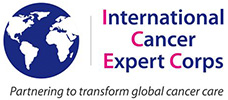An Innovative, Robust, and Affordable Medical Linear Accelerator for Challenging Environments:
A Workshop Organized by the European Organization for Nuclear Research (CERN), International Cancer Expert Corps (ICEC) and the Science and Technology Facilities Council
CO-ORGANIZERS: Manjit Dosanjh, CERN; Norm Coleman, ICEC; David Pistenmaa, ICEC, Manjit Dosanjh, CERN, Charlotte Jamieson, STFC
On October 25, 2017, ICEC, along with CERN and the Science and Technology Facilities Council (STFC) UK, convened a second workshop meeting to further discussions regarding the goals of national and international organizations to fill the current gap of approximately 5000 radiation treatment machines, primarily in Low- and Middle-Income Countries, as reported by the UICC Global Task Force for Radiation Therapy for Cancer Control (GTFRCC), and the global need to reduce the threat of radiological terrorism inherent in the wide distribution of cobalt-60 treatment units, primarily in LMICs.
In addition to bearing the cost of conventional (standard) linear accelerators, many countries lack the physical infrastructure, such as reliable electrical power and water, to support sophisticated accelerators and also have a shortage of adequately trained personnel to run and maintain the complex machines. There is concurrent interest to increase the security of radiological materials among experts involved in nuclear non-proliferation, including the US Department of Energy’s National Nuclear Security Agency and the IAEA, as well as other governments and non-governmental organizations. These interested organizations recognize that achieving this goal by replacing cobalt-60 with linear accelerators will require providing expertise, education, training and sustainable mentorship in the recipient countries.
Consensus remains that the need to develop a novel medical linear accelerator that can deliver state-of-the-art radiation therapy in regions that have limited infrastructure is paramount, not only to deliver high-quality, safe cancer care but also to attract and retain well-educated and trained oncology and physics experts. The overarching goal of the initiative is to design a machine that delivers technologically advanced radiotherapy while simultaneously is easy to operate, maintain and service especially in challenging environments with inadequate infrastructure.
Funded through the UK’s Global Challenges Research Fund, individuals from Nigeria, Jordan, Tanzania, Ghana, and Botswana attended the meeting to share both unique and common challenges they face in their efforts to deliver radiotherapy to their patients. Their input was highly valuable to understand the special needs of those delivering medicine in regions with limited resources, and with innovative redesign, the scientific and engineering requirements of such an accelerator seem attainable.

